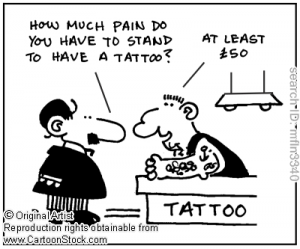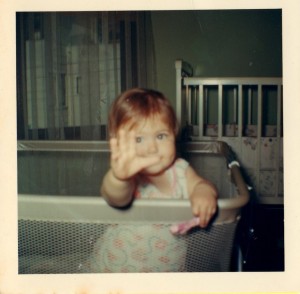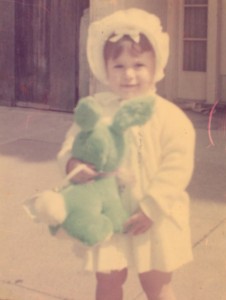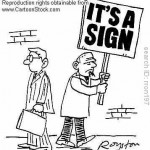I assume that most of the people reading this blog came to find it and me via Twitter. I adore Twitter. Not only have I made some new friends thanks to those 140 characters, but I’ve also become aware of music and books that had previously been unknown to me. The theme of today’s post is one such example.
 Thanks to a singer-songwriter I follow on Twitter named Gretchen Peters and our tweets back and forth about spelling and grammar, I became aware of a man named Jeff Deck. Gretchen tweeted a link to an interview Jeff gave about his book, The Great Typo Hunt: Two Friends Changing the World One Correction at a Time, and I was immediately intrigued. You see, I’m one of those people who can spot spelling errors everywhere. I find them in books, on websites, and scrolling to the side, under and above the television anchorperson’s talking head. I don’t look for these errors, they just appear in front of me, mockingly.
Thanks to a singer-songwriter I follow on Twitter named Gretchen Peters and our tweets back and forth about spelling and grammar, I became aware of a man named Jeff Deck. Gretchen tweeted a link to an interview Jeff gave about his book, The Great Typo Hunt: Two Friends Changing the World One Correction at a Time, and I was immediately intrigued. You see, I’m one of those people who can spot spelling errors everywhere. I find them in books, on websites, and scrolling to the side, under and above the television anchorperson’s talking head. I don’t look for these errors, they just appear in front of me, mockingly.
In fact, I once received a form rejection letter for a proofreading job and it was addressed to “Dear Job Seaker”. Despite my disappointment in not getting the job, the irony was not lost on me. You can imagine the pithy and witty response I sent back, can’t you?
Jeff and his friend Benjamin D. Herson, who co-wrote the book, traveled across the country hunting down typos in small town diners, national parks, etc. People like Gretchen and me understand this quest. As Jeff tried to explain to his girlfriend Jane, the reason why typos were a problem was because they represent, “The creeping menace of carelessness”.
Even if you don’t give a damn about the Oxford comma and it doesn’t faze you when someone uses “loose” instead of “lose” in a sentence, you have to admit that as a culture, we have become more careless about the rules of grammar and spelling. Granted, no one is perfect. In fact, I’m nervous that this post will contain some sort of grammatical error. The difference is, I care if I make a mistake.
In the book, Jeff describes two schools of thought when it comes to grammar and spelling correction. In this corner, we have the Descriptivists, aka, the Grammar Hippies. This approach favors a more subjective view of language and how people spell now, rather than how something is supposed to be spelled. To the Grammar Hippie, language is in a constant state of change and movement, kind of like those rhythmically-challenged, tie-dye wearing folks dancing at a Grateful Dead concert.
In the other corner, there are the Prescriptivists, or the Grammar Hawks. The Hawks believe that there is one way to spell, punctuate, etc., and that doesn’t change. There is a longstanding tradition and it works. There’s no need to mess with it. None of this hippie-dippy nonsense for the Hawks. No sirree!
It didn’t take me long to realize that I totally identify as a Grammar Hawk. To me, it’s a no-brainer. You learn how to spell a word and that doesn’t change. You place a comma here, and it stays there. How you feel about the placement of said comma or how you want a word to be spelled is irrelevant. I remember rolling my eyes when an ex of mine tried to explain why whole language learning was better than strict phonics. (She was a schoolteacher.)
She said that proper spelling wasn’t as important as understanding the meaning and context of the words. This was heresy to me. Sure, when the word “cat” is written, an image of a feline would help with context. But this doesn’t mean that it’s okay for a child to continually misspell “cat” despite knowing what one is.
To me, the emphasis on feeling and self-esteem I perceive from the Descriptivists point of view is a factor in why we’re seeing more typos and grammatical mistakes. It also reminds me of a previous post about children and sports. When the purpose of an endeavor, be it a game or writing an essay, becomes more about self-esteem than about skill development, we, as a culture, suffer.
Wherever you find yourself on the spelling spectrum, Jeff and Benjamin will take you on an entertaining and informative ride in their book. There were times when I became really depressed while reading it. All I could see was the downfall of our culture as each typo was found. I was further saddened that when the mistakes were pointed out to people, many reacted either defensively or apathetically.
Ultimately, though, Jeff and Benjamin didn’t undertake this journey to be scolds or to make people feel stupid. They did this to facilitate better communication between people. If the world could use one thing more than anything else right now, it would be better communication and understanding. On that, I think both Grammar Hawks and Grammar Hippies can agree.











